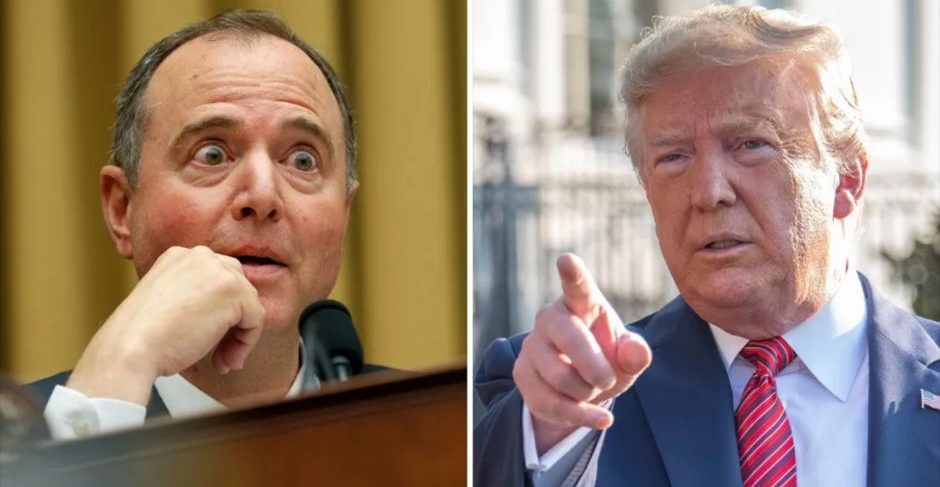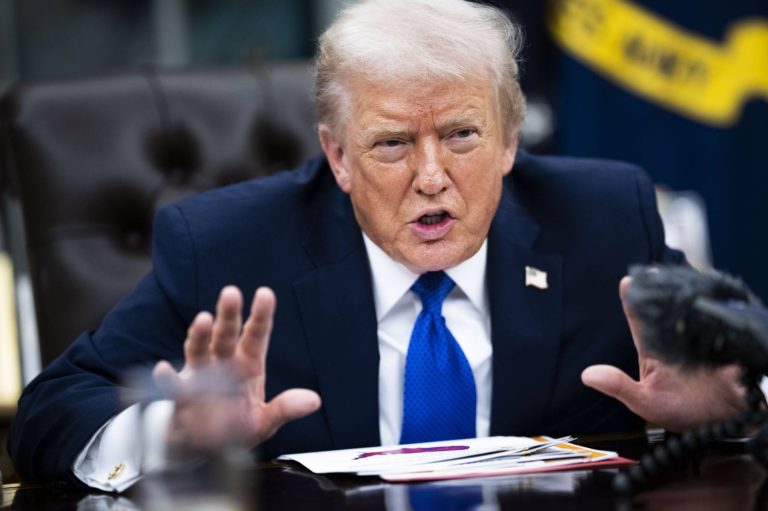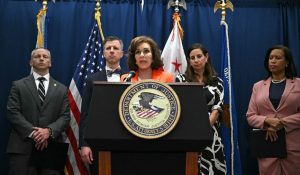White House Hits Back After Schiff’s Ethics Demand — And Pelosi’s Name Suddenly Takes Center Stage
A bold demand from Senator Adam Schiff is backfiring—and the White House isn’t pulling any punches. What began as a call for transparency quickly turned into a political boomerang, redirecting attention toward one of Schiff’s most powerful allies: Rep. Nancy Pelosi.
Last week, Schiff sent a pointed letter to White House Counsel David Warrington and Chief of Staff Susie Wiles, raising concerns over what he called the administration’s failure to file required financial disclosures for senior officials. He demanded a list of those expected to file, reasons for any delays, and explanations for missing ethics reports.
But the White House swiftly pushed back, labeling Schiff’s inquiry as “outrageous.” Spokesman Kush Desai fired back in a statement to ABC News, calling out what he described as political grandstanding—and suggesting Schiff focus on someone much closer to home.
“The American people remain highly concerned about Nancy Pelosi’s long, documented history of insider trading,” Desai said. “They eagerly await Adam Schiff refocusing his political stunt on serious issues, like Pelosi’s portfolio.”
That statement set off a fresh wave of scrutiny toward Pelosi, whose personal wealth—estimated at over $120 million—has long been the subject of public suspicion due to her stock trading history. Critics have accused her and her husband of benefiting from privileged access to non-public information. While Pelosi has denied any wrongdoing, the controversy refuses to go away.
In fact, the issue has already inspired federal legislation. In 2023, Senator Josh Hawley introduced the PELOSI Act—short for Preventing Elected Leaders from Owning Securities and Investments. The goal? Ban members of Congress from trading individual stocks altogether. Congressman Mark Alford introduced a matching House bill, underscoring bipartisan concern over potential conflicts of interest on Capitol Hill.
“Members of Congress should be fighting for the people—not day trading at the expense of their constituents,” Hawley said. “Americans have seen politician after politician profit using information the public doesn’t have. It’s time to restore trust.”
White House spokeswoman Taylor Rogers added that, contrary to Schiff’s accusations, senior officials are filing the required reports, including periodic disclosures of stock trades. She emphasized that both Republican and Democratic administrations have complied with these standards for decades.
But Schiff isn’t letting go. In a follow-up statement, he doubled down on his concerns, accusing the administration of enabling officials to hide assets and potential conflicts. “Transparency and ethics laws must be respected,” he said.
Still, his critics see the move as political theater—and many are now turning the spotlight on Pelosi.
When asked recently about banning congressional stock trading, Pelosi gave only a vague “sure” in response. Her office maintains that she no longer owns stocks and has no role in any financial decisions. But that hasn’t stopped the wave of bipartisan backlash.
As the ethics debate heats up, one thing is clear: Schiff’s attempt to target the White House may have unintentionally opened a much bigger—and far more personal—can of worms.

Sarah Mitchell is a bestselling novelist recognized for her insightful and emotionally resonant stories that explore the complexities of human relationships. Originally from Denver, Colorado, Sarah grew up in a family of teachers who nurtured her curiosity and love for storytelling. She studied psychology at Stanford University, where she became fascinated by the intricacies of human behavior—an interest that would later shape her writing career. Sarah’s novels are praised for their nuanced characters, intricate plots, and ability to capture the subtle tensions that define love, friendship, and family ties. Her breakthrough novel, The Spaces Between Us, became an instant bestseller, lauded for its honest portrayal of strained family relationships and the fragile bonds that hold people together. Since then, she has published several works that continue to captivate audiences around the world. Outside of her writing career, Sarah is passionate about mental health advocacy and often partners with organizations to promote awareness and support for those struggling with emotional well-being. Her personal life is quieter—she enjoys hiking in the Colorado mountains, practicing yoga, and spending time with close friends. With each new book, Sarah Mitchell cements her reputation as a writer who illuminates the beauty and struggles of human connection.









